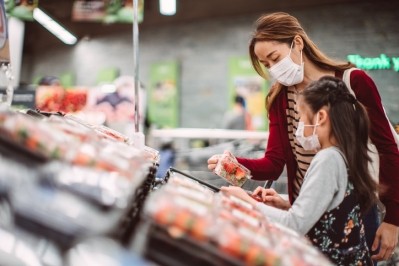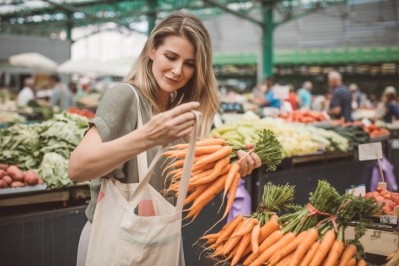ESG: A horse still worth backing?

There's mounting evidence that the cost of living crisis is having a significant impact on consumer behaviour, and many food and beverage companies are braced for a period of falling sales and rising costs.
The number of consumers cutting back on their grocery shopping as a result of inflation has grown significantly during the past year, according to new research, based on a survey of 1,000 consumers in the UK and US, commissioned by specialist PR consultancy Ingredient Communications.
A quarter of respondents (24.9%) said they had stopped buying a food or beverage product in the previous three months due an increase in price. This is significantly higher than 10 months earlier in late 2021, when the same survey found that 17.6% of shoppers had traded out of a product because it had become too expensive.
Is company purpose immaterial during a cost of living crisis?
Where does this leave the concept of company purpose, a strategy perhaps best exemplified by Unilever's goal ‘to make sustainable living commonplace’? Greener, healthier and more ethical food and beverage products are typically more expensive.
But while many shoppers are prioritising affordability over sustainability, significant numbers are still prepared to pay a premium for these types of products.
Research from Bain & Company, a consultancy, and Verlinvest, the growth fund investor with over $2bn in funds under management, claims insurgent ‘purpose-led brands’ focused on sustainability are experiencing 10x higher revenue growth than incumbents. Some 70% of consumers will pay a reasonable premium (~10%–25%) for sustainability, the survey said. While this report is being published “at a challenging time” for consumers and consumer businesses, it said, its findings claim to show long-term shifts that are being driven by younger consumers who prioritize sustainability and purpose as part of their purchasing criteria in a way that previous generations have not.
“We’ve closely followed this phenomenon of ‘purpose-led’ brands over the last decade as they’ve risen in popularity and success - and Verlinvest has partnered with those we feel can have the most impact,” said Eric Melloul, Managing Director at Verlinvest, who co-authored the report. “This research shows these brands are finally breaking into the mainstream and achieving significantly higher revenue growth than incumbents.”
Verlinvest has previously backed well-known consumer brands such as Oatly, Vita Coco, Tony’s Chocolonely, Chewy.com and Hint Water. One company analysed in its report, however, is the notorious Beyond Meat, whose stock price has dipped nearly 70% in the last 12 months and which is plagued by market under confidence.
How seriously will the claims of Verlinvest’s report be taken?
The company remains firmly committed to backing category-defining brands that are supported by long-term trends, be that sustainability, health or ethics, said Ben Black, head of European food and beverage. Current market conditions are a “test of nerve”, he told FoodNavigator. “We expect to see some scepticism around some ESG values – absolutely,” he said. “But fundamentally we believe this is a longer-term shift led by a generational change… What we're seeing is that younger consumers have the value of sustainability much higher up their purchasing criteria.”
Consumers do have less money in their pockets, he said. “This means we are still backing the same long-term trends, but we are ultimately looking for businesses with a high degree of resilience and structural profitability than we were 12 months ago purely so that they can survive the volatility that we think has defined the past 6 months and will probably continue to define the next 12 months.”
He continued: “From my perspective, within FMCG we are looking at categories that have a fundamental problem that we believe can be solved by innovation. So we're looking for either category-defining brands or the prospect of innovation that provides better outcomes for the consumer that ultimately we can offer trade ups.”
'Propositions that add value back into categories'
The focus on premiumisation, he told us, doesn’t mean that “with recession looming we are looking to charge significantly huge amounts more. It means we are offering businesses at the more premium end of categories that can offer customers a chance to justify buying them because they offer better quality, health or sustainability.”
Want examples? Two of Verlinvest’s cohorts that are justifying their price are ‘slavery-free’ chocolate maker Tony's Chocolonely and Italy’s top tomato brand Mutti. The former is doing so by exposing ethical issues that many people were previously unaware of; the latter by offering consumers a trusted heritage brand that gives them a licence to indulge.
Where there are trade downs from shoppers, meanwhile, is in high ticket items like cars, furniture and bikes. “In food and beverage, we still see pockets of opportunity to justify premium prices," Black surmised.
Shaking up digital food delivery
Verlinvest is also firmly backing the digitalisation trend and recently helped French start-up Not So Dark raise $80 million Series B funding. Again, this defies suggestions that COVID’s retreat marked the end of the food delivery trend. Deliveroo, for example, has just lowered its growth projections as consumers tighten their belts.
But, again, Verlinvest is buoyed by generational shifts within the category. “We've been hugely convinced about food delivery being a structural trend,” explained Verlinvest Executive Director Raphael Thiolon. “I know it's been questioned lately with some stock prices declining but it's a huge space that has been growing consistently at double digits.
“It's being challenged in the short term,” he admitted. “There is some pressure on disposable income and so it may encourage some segments of consumers to maybe order less frequently and we might be seeing some pressure on average order value, but we are not seeing the overall penetration going down. When you look at younger consumers especially the penetration of food delivery is sky high - we're talking 80% 90%. Half order on a weekly basis. So at the margin you'll see some reduction but we do believe all sorts of delivery will benefit a bit from the shift from dining at restaurants to ordering at home.”
The Not Dark Yet fund raise is a further example of consumers trading up, concluded Black. “There is a significant dislocation from out of home food spend where people will forego an expensive meal out and eat higher quality food in home and that's a net beneficiary in our mind of some of the more sustainable, premium solutions that we're offering.”
























